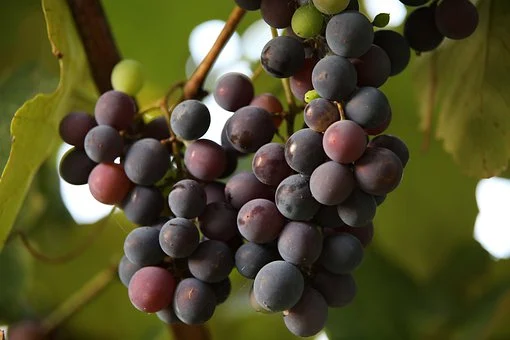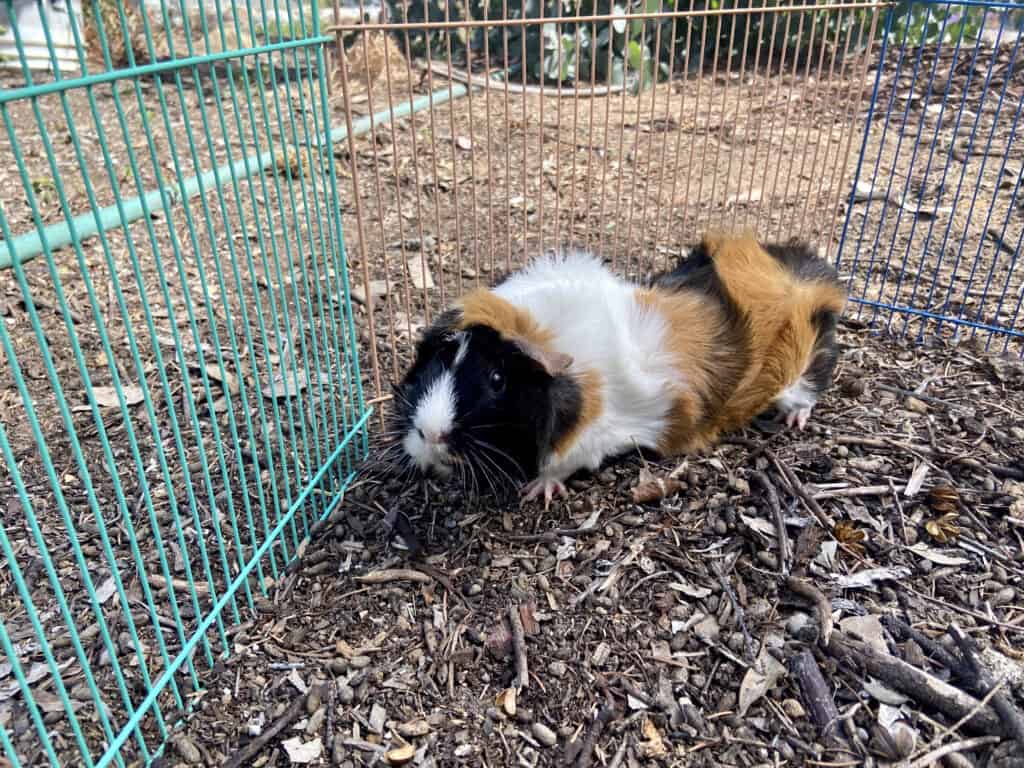As an Amazon Associate we earn from qualifying purchases.
Guinea pigs are small rodents that are considered pets in many households. These furry little creatures have a voracious appetite and will eat just about anything you put in front of them, including fruits. This leads us to the question, can guinea pigs eat grapes?
Guinea Pigs And Grapes
Guinea pigs are often seen eating grapes in cages or as a diet. These are not typically considered harmful to them, but there are a few things to keep in mind. The skin and seeds can be hard for them to digest, so it’s important to remove them before feeding the fruit to your pet.

They also contain sugar, so they should be given in moderation as a diet. If you’re looking for a tasty treat for your pet, try offering some chopped grapes next time you refresh their food bowl.
Benefits Of Feeding Guineas With Grapes
As you may know, they are rodents that originate from South America. In the wild, they subsist primarily on a diet of grasses and other vegetables. When it comes to domesticated guineas, however, their diet is often supplemented with fruits and vegetables.
So, what are the benefits of feeding grapes to guineas? Let’s take a look:
- They are a good source of vitamins and minerals. They need a variety of vitamins and minerals to stay healthy. This fruit is a good source of several of these nutrients, including vitamin C, manganese, and potassium.
- This fruit can help keep them hydrated. Since they are made up of mostly water, they can help keep them hydrated – especially during the hot summer months.
- They can help with digestive problems. If your pet is experiencing digestive problems, feeding them this fruit may help to alleviate the issue. The fiber in this fruit can help to bulk up their stool and make it easier to pass.
- They are a low-calorie treat. If you’re looking for a low-calorie treat for your pet, grapes fit the bill. This is especially important if your guinea is overweight or obese, as feeding them too many high-calorie foods leads to further weight gain.
So there you have it – four benefits of feeding grapes to guineas. If you decide to give it a try, make sure to monitor your pet closely at first to ensure that they don’t have any negative reactions. And, as always, consult with your veterinarian if you have any concerns about your guinea pig’s health or diet.
Guinea Pigs Diet
The guinea pig is a famous pet, and its diet is important to keep it healthy and happy. While they can eat a variety of foods, there are some things that they should not eat. Here is a look at what you need to know about feeding your pet.
They are herbivores, so their diet should consist mostly of:
- Hay is essential for them as it helps them keep their digestive system healthy. Fresh vegetables provide essential nutrients and vitamins that they need, and pellets offer a balanced diet. When choosing hay for your pet, make sure to get timothy hay or another type of grass hay as it is the best for their digestion.
- Some vegetables that they like to eat include carrots, celery, cucumbers, and spinach. When feeding vegetables to your pet, make sure to wash them thoroughly and chop them into small pieces so they can easily eat them. Avoid giving them iceberg lettuce as it has very little nutritional value.
- Fruit can be a tasty treat for them, but it should only be given in small amounts as it is high in sugar. Some fruits that are safe for them to eat include apples, blueberries, strawberries, and watermelon. Again, wash the fruit thoroughly and cut it into small pieces before giving it to your pet.
- They should also have access to fresh water at all times. A water bottle is the best way to provide fresh water for your guinea as they can drink from it whenever they like.
- Pellets can be given once or twice a day, and freshwater should be given as needed.

Feeding Time
As long as your guinea pig has hay, water, and a few pellets available to him at all times, he should be fine. He will nibble on hay throughout the day and eat more when he feels like it. If you’re not sure when your pet last ate, check his food dish to see if there is any hay or pellets left. If there is, he’s probably eaten recently and doesn’t need more food. If his dish is empty, give him a handful of hay and a few pellets. They typically eat every 3-4 hours, so if it’s been longer than that since he last ate, he may be hungry.
Cons Of Feeding Grapes To Guineas
The cons of feeding grapes to guineas include:
- Risk of gastrointestinal issues and potentially toxic compounds in this fruit themselves. While they are not typically harmful to guineas, there have been reports of them causing stomach upset and even diarrhea.
- Additionally, some grapes may contain small amounts of toxins that can be dangerous for your pets.
- If you do decide to feed your guinea this fruit, it is important to do it moderately and to monitor their health closely. If you notice any negative reactions, stop feeding them this fruit and contact your veterinarian.
Final Thoughts
Guineas can eat grapes, but there are a few things to keep in mind. These should be given in moderation as part of their required diet, and the skin and seeds should be removed before feeding them to them. Additionally, it is important to monitor your pet closely for any negative reactions after introducing this into their diet. If you have any concerns, consult with your veterinarian.